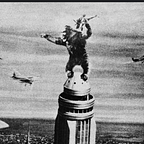godless Recovery
Part two: Seeking a conscious contact
I wrote godless Recovery in 2018, 8 years after the fated afternoon which began my search for existential gratification in earnest. Ever the persistent seeker, that is, when I wasn’t disrupting constructs of contentment as the persistent rebel, I had desired knowing why all the different parts of life were as they were. Why people did what they did (including myself), and how to determine how certain events indicated the likelihood of other events. While such interpretative assessments, and ability to make a prediction (based on behaviors or events) may seem like common sense, I found the world a baffling place.
Mostly I wanted to understand my own mind; I wanted to discover the secrets of how my mind worked. I also wanted to uncover myself… my real self, the true me…whatever or whoever that was. It seemed, that despite my best inductive efforts, who I was remained an undetermined entity… possibly impossible to locate. Who I was remained an elusive concept, especially in those frequent times, throughout adolescence and young adulthood, when I found myself torn between the polar opposites of cognitive dissonance.
Twisted with the discontentment of being at odds with myself, I could not answer the question of ”why?” Why did I do the things I did (that resulted in undesirable outcomes), despite having internalized the beliefs (about how one should conduct oneself) that I believed I was supposed to believe.
